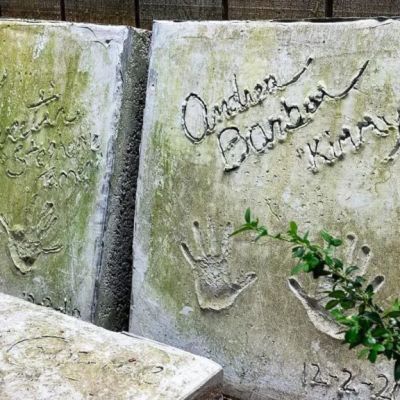Scammers are using AI to impersonate mansion owners
Prestige property owners in some of the world’s most expensive markets are on alert for an elaborate and cruel new scam.
Elvis Presley’s family were (almost) a high-profile victim of an alleged property document ruse, which uses AI to generate legal paperwork that criminals use to claim a home is theirs.
It is a kind of swindle that doesn’t look like it could possibly work, but in the case of Elvis’ Graceland, it took a judge to intervene and halt a foreclosure sale.

Presley’s granddaughter, actor Riley Keogh, successfully applied for the bogus foreclosure to be stopped.
A US woman was charged in September with alleged mail fraud and aggravated identity theft.
In May, a public legal notice was distributed, stating the iconic mansion at 3734 Elvis Presley Boulevard in Memphis, Tennessee, would be sold at a foreclosure auction at Shelby County Courthouse.
The legal notice alleged that Elvis’ daughter, the late Lisa Marie Presley, signed a Deed of Trust in 2018, securing a $US3.8 million ($AU5.7 million) loan with company Naussany Investments and Private Lending, with Graceland to be used as collateral.
Keough, the daughter of Lisa Marie and a Hollywood star in her own right, filed a lawsuit on May 15 in Shelby County Chancery Court, claiming that her mother never secured a loan from the company and her signatures on the deed are fake.

“These documents are forgeries,” the lawsuit, seen by Nine’s property team, said. The auction was shut down.
In Los Angeles, the ownership of Spelling Manor, a 120-room mansion famously built by Beverley Hills 90210 TV producer Aaron Spelling and his wife, Candy, is entangled in a legal dispute which has some similarities to the Graceland sham.
Spelling Manor (sometimes called Candyland or The Manor) is legitimately on the market, with price hopes of $US137 million ($AU203 million) but it is up to a judge to determine who the legal owners are, the Wall Street Journal reports, after a couple came forward and said the estate belongs to them.
The problem is touching all price points of the American property market, including vacant residential land sales.
The FBI released a statement in May alerting Americans vacant land owners to growing incidents of deceit, in which a scammer forges title documents for an empty block and lodges them with relevant county authorities. On paper – and to anyone, like a buyer, who checks – they appear to be the owner.

They then list the address for sale and request for a quick, cash-only deal. In some instances, the correct owners of the land don’t know they have been the victim of an underhanded deal.
The bureau said it is happening at an “alarming” rate in some cities.
“It boils down to property owner impersonation,” FBI Newark special agent Joe Cardosi said in a statement.
“These bad actors are able to use electronic communications to convince everyone at every level of a property sale that they’re the rightful owner of the property and, therefore, the rightful recipient of the sale proceeds. But they don’t own the property.”
In a dreadful twist for victims, it is incumbent upon the rightful owner to prove so in court.
We recommend
States
Capital Cities
Capital Cities - Rentals
Popular Areas
Allhomes
More
- © 2025, CoStar Group Inc.










